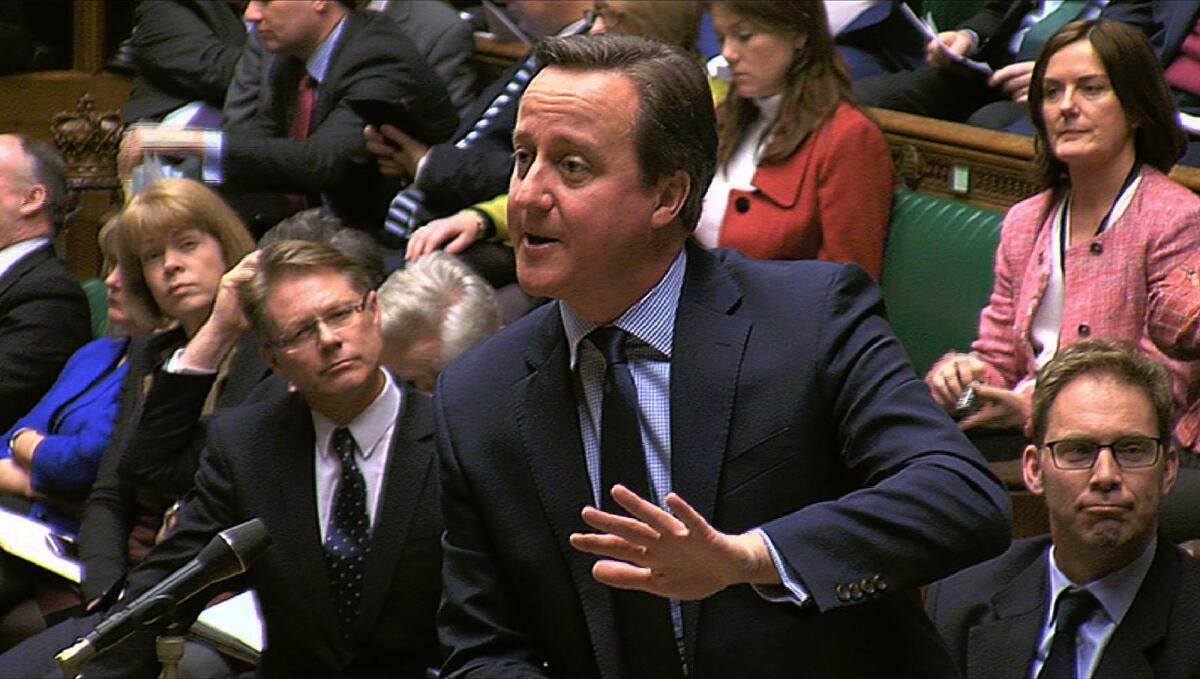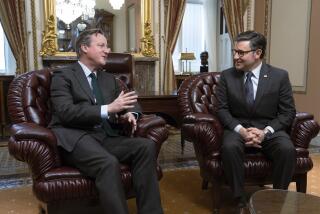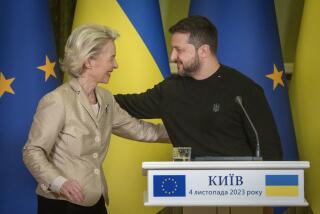Editorial: Why the UK needs the EU

Addressing the House of Commons in London on Monday, British Prime Minister David Cameron warned that a vote to leave the EU would risk Britain’s economic and national security.
London’s outspoken Mayor Boris Johnson rattled his Conservative Party leadership on Sunday by urging that voters in a June referendum pull the United Kingdom out of the European Union. But they would be better off following the advice of Johnson’s fellow Tory, Prime Minister David Cameron, who argues that the costs of splitting from the EU would greatly outweigh any benefits.
Though far from the “United States of Europe” envisioned by some, the 28-member EU has successfully knitted formerly hostile countries into union that has improved the lives of ordinary Europeans, including Britons who live in, travel to and do business with other European countries. Membership also has helped to turn London into Europe’s financial center.
Scotland’s first minister [Nicola Sturgeon] warned that if the UK withdraws from the EU, Scots might decide that “the only way to guarantee our EU membership is to be independent.”
Paradoxically, it also eases tensions within the United Kingdom. Nicola Sturgeon, Scotland’s first minister, has warned that if the UK withdraws from the EU, Scots might decide that “the only way to guarantee our EU membership is to be independent.” In Northern Ireland, Catholics who long for a united Ireland can comfort themselves with the fact that both the UK and the Irish Republic are joined together in the EU.
The risk to the EU, meanwhile, is that the UK’s withdrawal might tempt other healthy economies to follow suit. That could be a crippling blow to a union already struggling with a metastasizing refugee crisis, debt-laden economies and slowing global growth.
The UK joined what was then known as the European Economic Community in 1973, and two years later voters ratified that decision in a referendum. But “Euroskepticism” — rooted in geography and cultural prejudice — has been exacerbated in recent years by exaggerated complaints about meddlesome directives from “Eurocrats” in the EU’s offices in Brussels and an influx of immigrants and workers from Eastern Europe.
Last week Cameron secured changes in Britain’s relationship with the EU, including the right to limit some government benefits for migrants from other EU countries and a recognition that the UK isn’t covered by language in the Treaty of Rome that contemplates an “ever closer union among the peoples of Europe.” The changes are mostly symbolic and ratify what was already a distinct status for the UK; for example, the UK has not followed France, Germany and other major nations in adopting the Euro as its currency. Yet the modifications could disarm opposition to continued membership.
Some pro-withdrawal Britons emphasize the kingdom’s other connections, such as the NATO alliance and the “special relationship” with the United States. They should consider the words of President Obama, who last year said that “having the UK in the EU gives us much greater confidence about the strength of the transatlantic union.”
Follow the Opinion section on Twitter @latimesopinion and Facebook
More to Read
A cure for the common opinion
Get thought-provoking perspectives with our weekly newsletter.
You may occasionally receive promotional content from the Los Angeles Times.






